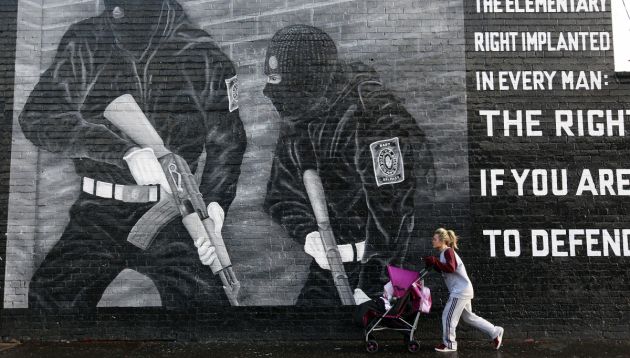Irish Catholic, Protestant churches urge politicians: Keep talking for peace

Leaders of Roman Catholic and Protestant churches in Ireland have joined to urge their politicians to sustain a reconciliation process that stalled after talks led by a former U.S. diplomat failed last month.
"As Church leaders we encourage politicians to sustain the momentum and energy generated by the talks of the Panel of Parties in the Northern Ireland Executive, chaired and facilitated by Dr. Richard Haass and his team," they said.
The joint statement came from the leaders of the Catholic Church, the (Anglican) Church of Ireland, as well as the Presbyterian and Methodist churches, together with the Irish Council of Churches.
Five of the key political parties that represent both Catholics and Protestants governing Northern Ireland failed to reach an agreement on December 31 on how to deal with provocative community marches and flags that will fly on public buildings.
They praised the "strenuous and sincere efforts put in by all involved," in the negotiations known as the Haass talks.
The talks are named after their facilitator Haass, the president of the U.S. Council on Foreign Relations, Richard N. Haass.
The Belfast Telegraph newspaper reported on Wednesday that Haas has called on political parties to set out a clear timetable for striking an as-yet elusive deal.
He expressed disappointment that all five executive parties involved with the governance of Northern Ireland failed to reach consensus on a draft agreement produced at the end of six months of negotiations.
Haass issued a joint statement with the talks' vice-chairperson Meghan O'Sullivan, a U.S. foreign affairs expert that said, "We are pleased that some of the parties of the Executive have endorsed the agreement in its entirety and agreed to move forward on its implementation.
DISAPPOINTED
"We are disappointed that all five have not done so. Unquestionably, there are details that need further refinement, but these details should be honed in the necessary legislation and during implementation."
The church leaders said in their statement, "This is an important time for our society; the momentum for building peace should not be lost.
"We are aware of the focus and effort that the forthcoming elections will require of our politicians but encourage all within the Executive to keep going with the work that has begun so that an acceptable process may be developed."
After a lull of some years, Protestant and Catholic-backed marches and the flying of the British Union flag from public buildings have triggered bloody inter-community clashes, the worst unrest in 10 years.
The U.S. negotiator had supported former Senator George J. Mitchell who brokered the Belfast Peace Agreement signed on Good Friday 1998 that advanced the peace process to resolve the conflict in Northern Ireland.
Before that Northern Ireland, which is on the island of Ireland and is administered as part of the United Kingdom, was engulfed in decades of bloody conflict that killed almost 4,000 people.
These involved Catholic supporters of Northern Ireland being part of Ireland, known locally as Republicans, and Protestants wanting to keep their ties with Britain, called loyalists, along with armed forces from the United Kingdom sent to quell unrest.
After the talks Haass said all parties supported aspects of a proposed agreement on how to deal with flags, disputed parades and the legacy of the Troubles, but a number of concerns remain.
